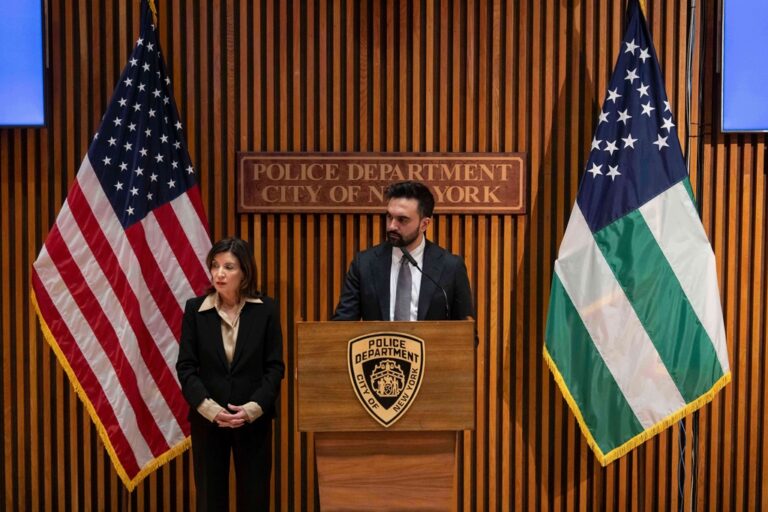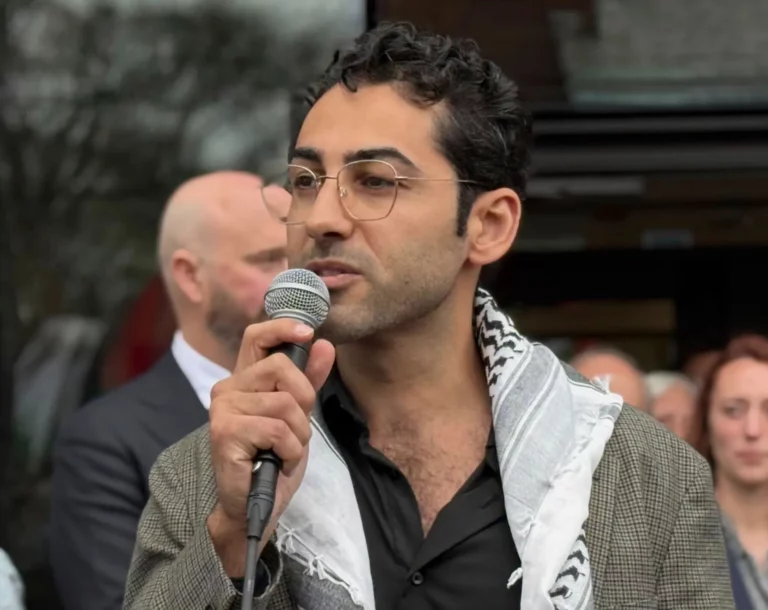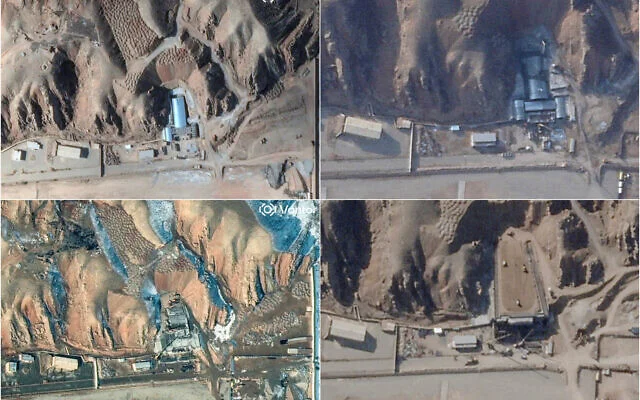)By Rabbi Yair Hoffman for 5TJT.com)
COVID-19 has brought about enormous change in our society. There are curfews; no weddings (or a 50-person maximum at weddings, with police oversight); no yeshivos in session (even BMG has closed down); no shul minyanim, not even backyard minyanim are allowed.
The very practices and institutions that keep us afloat spiritually have been taken away from us. People are worried about their elderly parents or grandparents. Wives are worried about their immunocompromised husbands. Many are worrying about their parnassah.
“Surely this cannot continue!”
“When will this all end?”
The Correct Perspective
Rav Tzvi Meyer Silberberg, shlita, grandson of Rav Gedaliah Schorr, zt’l, once remarked:
“There are pessimists who say that the cup is half-empty. There are optimists who say that the cup is half-full. But we are ma’aminim bnei ma’aminim who know that both of them are wrong. The cup is always completely full. Hashem fills it up half with water and half with air, but this is exactly what we need.”
Rashi in the beginning of Sh’mos explains that Hashem counts us to inform us of His love for us. The clear implication from Rashi is that the shibud (slavery) of Mitzrayim itself was also because of Hashem’s love for us. The cup is completely full.
This is the perspective that we need to take during these trying times of the coronavirus. That fascinating mixture of water and air, referred to by Dovid HaMelech as “shivtecha u’mish’antecha” and by economists as the “carrot and the stick,” is carefully designed and individualized for each one of us by Hashem Yisbarach. The cup is completely full.
With this perspective comes great growth.
Three Aspects of Emunah
The Nesivos Shalom notes that there are three aspects to emunah.
Hashem Created The World And Is In Charge. There is no question that the COVID-19 virus has effected a change in the perspectives of hundreds of thousands of people. “Ein Od Milvado:” there is no other power or force but Hashem. The Dow Jones is down to record lows. China was once on top of the world in terms of manufacturing; now every sector of its market has been affected. Kosher production in China is no longer existent, as all the mashgichim have gone home.
With one tiny piece of DNA, world markets and stock markets have been destroyed. All financial projections of companies have been thrown out the window.
Has there ever been an “Etzbah Elokim hi” moment affecting markets like this? The Yad Hashem is clear and present to all who open their eyes. And all this is happening right before Pesach.
There Is Hashgachah Pratis In The World. Perhaps it can be humbly suggested that COVID-19 is affecting the other two aspects of our emunah, too, including our appreciation of hashgachah pratis. True, our income has been hit, but there are signs here and there that show us that Hashem is looking out for us. We see and now further appreciate the hashgachah pratis.
Rambam in Moreh Nevuchim (III:18) writes that hashgachah pratis is not necessarily automatic. Hashem relates to us when we relate to Him. Those who focus their thoughts on Hashem enjoy greater hashgachah pratis. The wicked and those who have not made it their business to delve in matters of ruchniyus may not enjoy such hashgachah pratis.
But this, too, could be looked at as hashgachah pratis. Rav Moshe Chaim Luzzatto, in the first chapter of his Derech Hashem, explains that Hashem is the Ultimate Giver. Hashem wants nothing more than to give — but reward, in this world, must be earned. Perhaps this limitation on hashgachah pratis is an aspect of Hashem’s Benevolence in that it is a means of bringing the lost of the fold back to Avinu she’baShamayim.
The reason for the impending mitzvah of “v’higadeta l’vincha,” the mitzvah of sippur Yetzias Mitzrayim, is to build our appreciation of the hashgachah pratis of Yetzias Mitzrayim and in our lives in general. The great Mussar giant Rav Yerucham Levovitz, zt’l, of the Mirrer Yeshiva in Europe (see Da’as Chochmah U’Mussar, Vol. I p. 116) explained the word “meshubach” in “Kol hamarbeh l’saper b’yetzias Mitzrayim harei zeh meshubach” not as “praiseworthy,” but rather as coming from the word “mashbi’ach,” internally developed and grown. The growth inherent in level two of emunah is self-building.
Klal Yisrael Has A Special And Specific Task In This World. The third aspect of emunah is in fully appreciating our task in this world—that we are to be an ohr la’amim, a light unto the nations, eventually bringing all of mankind to a recognition of Hashem in this world. Perhaps we are receiving a little nudge to focus on what is important in this world. We should be making a kiddush Hashem in all that we do—in our driving, in the ways in which we conduct business, and in the way we relate and speak to others. We should be focusing less on the pursuit of gashmiyus, the physical, and more on the growth of our middos. The Vilna Gaon once said, “B’lo tikkun ha’middos, lamah li chaim?” He did not say “B’lo shopping at Macy’s,” etc.
We must take this opportunity to readjust and focus primarily on growth in ruchniyus and not gashmiyus.
Repercussions of Our Mission
Many people are wondering what we can be doing during all this time we now have at home with our children. Some are trying jigsaw puzzles and various games. What follows is another suggestion, one that can help get us to fully appreciate the Nesivos Shalom’s third aspect of emunah — our mission. Let us first zoom into some of the words in the first part of Shemoneh Esrei, “Mechalkel chaim b’chesed.”
Many people recite these words without giving them too much thought, unfortunately. Those who do think deeply into it understand them as saying, “Hashem sustains life through His middah of chesed.” Others understand it as, “Hashem sustains life and does so by throwing in extras, even more than we need.”
Rav Chatzkel Levenstein, zt’l, had a different take on these words. He said that the “fuel” by which it seems Hashem sustains us, the food that energizes us, is actually not food at all. It is not the wheat or the carbohydrates within it. It is not the proteins of cheese or meat or soy or beans. It is not the fats or the omega-3s. Rather, the means through which Hashem sustains life is chesed — or opportunities to perform it. This is what sustains us and makes us who we are. We can prove that we are the descendants of Avraham Avinu precisely because of this middah, this essential aspect of our diet that sustains the world. Olam chesed yibaneh.
So let’s do that with our children. Let’s use the opportunity to look out for others who may need a phone call. Let’s spend 20 minutes a day trying to redd shidduchim. Let’s involve our kids in this practice, too. Let us look for chasadim that we can do together.
One other thought: If we pursue Rav Chatzkel’s line of thinking that the “food,” the engine, that runs Hashem’s sustaining us, is chesed, let us reread the next few words, “Mechayei meisim b’rachamim rabim.”
Wow! Enormous implications here. We can do techiyas ha’meisim, reviving the dead, counteracting what we fear most about COVID-19. How so? If we engage in acts of “rachamim rabim,” acts of great mercy.
In this lies the great potential for growth in the current corona crisis. That mixture of water and air can be utilized to spur remarkable expansion and development. Let us grow from this, in all ways. Let’s grow our empathy for humanity and walk in His ways, fulfilling the mitzvah of “v’halachta b’drachav.” Let us daven for all the people affected by the virus, as Dovid HaMelech says, “V’rachamav al kol ma’asav.” And let us daven for the time of “V’yei’asu kulam agudah achas la’asos retzoncha b’leivav shaleim.”
The author can be reached at [email protected].











One Response
It definitely tests our emunah in the leaders of our community (and our country), and most of our media. A bad case of flu the while infecting most people (and probably will infect almost everyone), only causes serious illness among some people (primarily the sick and elderly) – and the powers that be have acted as if it was the end of the world, undermining society and the economy, not to mention undermining Yiddishkeit.